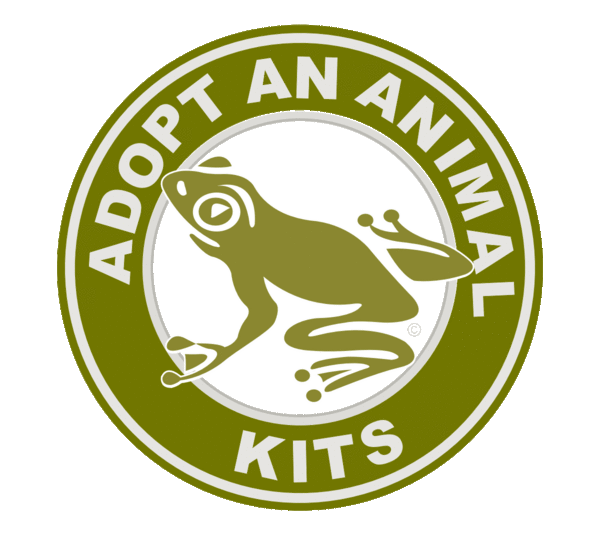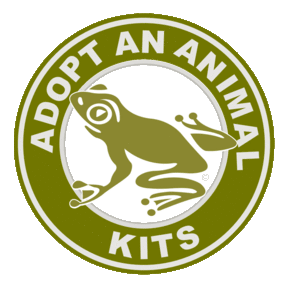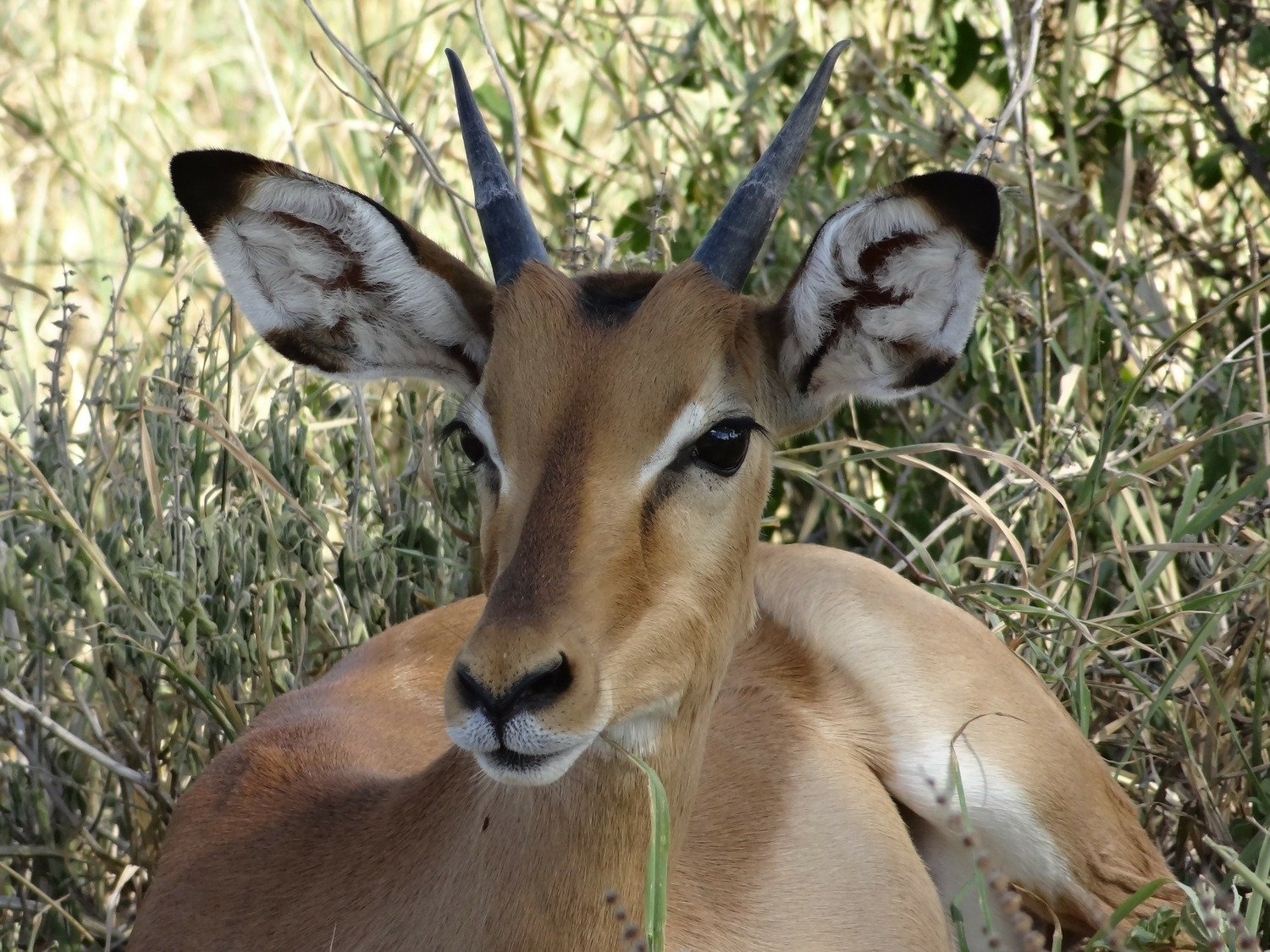

Adopt An Animal Kits
Adopt An Animal symbolically. Your Adopt An Animal Kit comes in a Deluxe Folder and includes: Glossy Photo of Your Adopted Animal; Adopt An Animal Adoption Certificate; Fact Sheet About Your Adopted Animal; Help Animals Info Cards Packed With Information On Animal Issues & How You Can Help Animals And The Environment. Adopt An Animal for Yourself or as a Gift.
Adopt An Impala
Adopt An Impala
Your Adopt An Impala Kit comes in a Deluxe Folder and includes:
- Glossy Photo Of Your Adopted Impala
- Adopt An Impala Adoption Certificate
- Fact Sheet About Your Adopted Impala
- Help Animals Info Cards Packed With Information On Animal Issues & How You Can Help Animals And The Environment
Adopt An Impala Kits make great gifts and can be sent directly to the recipient. Simply supply the recipient's name and mailing address as shipping information. We'll even include a letter stating the Adopt An Animal Kit is from you.
Adopt An Animal symbolic adoption is a one time fee. Adopt an animal for yourself or order an Adopt An Animal Kit as a gift. Help make a difference for animals - Adopt An Animal Today!
Adopt An Impala
Impalas are one of the most common and most graceful of Africa’s antelopes. Male impalas, called rams, are well-known for their large, curved horns.
Impalas are one of several species of antelope inhabiting the African continent. Impalas are medium-sized antelopes usually found in the savannas and thicker bush-lands in southern parts of the African continent.
Impalas are members of the Bovidae family. They are related to goats, sheep and cattle. They have long legs and necks. Impala are covered with reddish or brown hair and black and white markings. The hair in their ears and around their eyes is white.
Rams use their horns for defense against predators and other male impalas. Female impalas, called ewes, do not have horns.
Male impalas secrete a scent from a gland on their foreheads to communicate their status to rival impalas. When a male impala loses his rank, he produces less scent. Male impalas fight for territory and status during the mating season, using their horns as weapons. Older impala males claim mating territories and herd females that they guard against rival impalas. The male impala must fight off any challengers, while continuously herding and mating with his females. Competing males who loose their attempt to take over the territory usually retreat to join a bachelor herd.
Impalas are among the most adaptable animals in the African savanna. They are able to alter eating habits with the season, feeding on what is available. Impalas are herbivores, eating only vegetation. Their diets includes bark, leaves, wood and stems. Impala prefer fresh grass, but will also eat foliage and shoots when fresh grass is not available. Impalas usually drink water during the hottest part of the day when predators are the most sluggish.
Impalas live in large tribes. Female and young impalas form herds of up to 100 impalas. Young impalas live in nursery schools, called creches, where they play and groom each other. Males live in bachelor communities of around 60 male impalas. Impalas occupy large ranges, making seasonal migrations from higher to lower areas based on the availability of food.
Female impalas leave the herd to give birth. They can delay birth for a month if the weather conditions are not favorable. After a gestation period of 6 to 7 months, mothers will give birth to usually only one impala baby. Twice as many female baby impalas are born each year than male impalas. Baby impalas are called calves. After one or two days, the mother impala will bring her baby back to the community. Calves are weaned in 4 to 7 months. By 12 to 18 months old, impalas are sexually mature.
Impalas have many natural predators, including lions, leopards, cheetahs, hyenas and crocodiles. They are able to jump over nine meters in distance, and over two meters high, to escape and confuse predators. Impalas use bark-like sounds to alarm each other of danger.
Impalas live for about 13 years in the wild.
THREATS TO IMPALAS
The largest threats to impalas are hunting and habitat loss. Impala habitats are being disrupted with the expansion of roads and human settlements. Most impalas are currently not endangered, with a population of about 2 million. Fifty percent of impalas live on private lands. 25 percent of impalas live in protected areas. The Black-faced impala is endangered as a result of hunting.
Adopt Adopt An Animal Kits
Our Adopt An Animal Kits are educational packets that allow you to symbolically adopt a favorite animal species and contain a variety of information promoting the protection of wildlife, companion animals, farm animals and the environment. By purchasing a symbolic adoption kit you will receive a packet of information regarding daily choices you can make to help the earth and animals.
Your Adopt An Animal Kit comes in a Deluxe Folder and includes:
Glossy Photo Of Your Adopted AnimalAdopt An Animal Adoption CertificateFact Sheet About Your Adopted AnimalHelp Animals Info Cards Packed With Information On Animal Issues & How You Can Help Animals And The Environment.
Adopt an animal for yourself or order an Adopt An Animal Kit as a gift. Symbolically adopting an animal is the perfect gift for a loved one who loves animals, and helps to promote the compassionate treatment of animals and respect for the environment by offering information on how to help the earth and animals. Adopt An Animal Kits can be sent directly to the recipient: simply supply the recipient's name and mailing address as shipping information. We'll even include a letter stating the Adopt An Animal Kit is from you.
Adopt An Animal Kits is a small, independent business not affiliated with any other business, non profit or charitable organization.
Fast Shipping!
Shipping time for Adopt An Animal Kits averages 2 to 4 business days - USA. Allow additional time for Adopt An Animal Kits orders outside the USA. Your Adopt An Animal Packet will arrive approximately 2 to 4 business days following shipping date. Shipping for Adopt An Animal Kits within the USA is by U.S.P.S. Priority Mail.
INTERNATIONAL ORDERS: Average shipping time for Adopt An Animal Kits outside of the USA is 5 to 14 business days, including Canada. International Shipping & Handling for Adopt An Animal Kits is by U.S.P.S. First Class Mail.
About Us

Adopt An Animal Kits, LLC
The world is teaming with an amazing diversity of animals. Some species are beautiful, others bizarre — but they all are important to the ecosystem and deserve our respect, compassion and protection. Unfortunately, many animal species are declining at a rapid rate as a result of irresponsible human activities. Habitat destruction, pollution, hunting, poor agricultural practices and changes in climate are among the threats faced by wildlife and domestic animals.
Adopt An Animal Kits, LLC is a small business who believes in promoting the advancement of compassionate living by educating the public about animal and environmental issues and what individuals can do to prevent cruelty to animals. Through our work, we strive to eliminate the prejudice of animals (speciesism) through educational efforts. Our business produces printed and printable educational materials available to individuals with an interest in earth and animal topics. Our Adopt An Animal Kits seek to educate and influence individuals on environmental and animal issues. The purchase of an Adopt An Animal Kit allows you to symbolically adopt your, or your loved one's, favorite animal species while promoting the protection of wildlife, companion animals, farm animals and the environment. Rather than adopting an indivdual animal, you are symbolicly adopting the species. Each kit contains a collection of information on how you or your loved one can make daily choices to help animals and the environment.
Our website provides an information portal regarding these issues. Information posted on the site is free of charge and available to anyone with an interest. Our printed and printable materials are available to individuals with an interest in earth and animal issues. We produce hundreds of fact sheets, flyers, and digital materials regarding environmental and animal issues. Most materials are available at no cost to anyone with an interest.
Adopt An Animal Kits, LLC is not a charitable or nonprofit organization.

